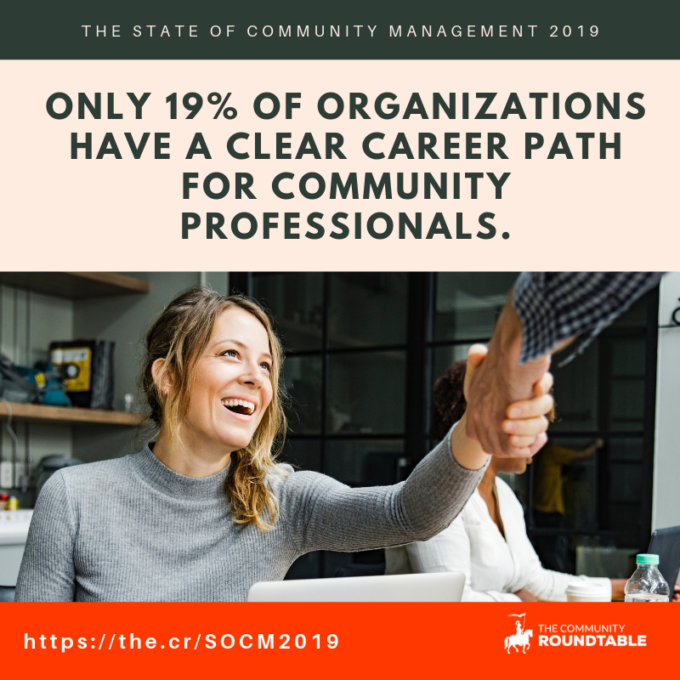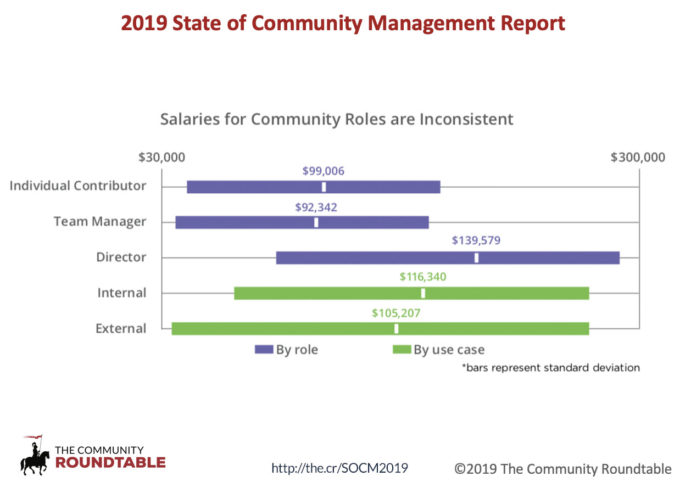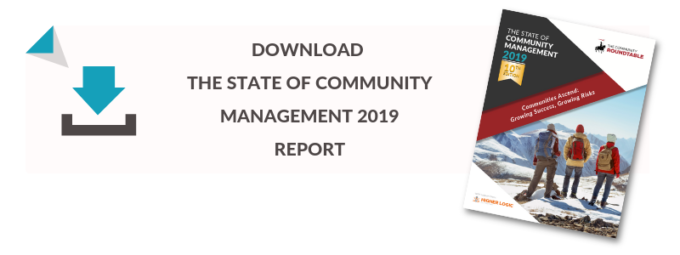
Community roles are more differentiated than they were just a few years ago, but they still lack consistency and rationalized salaries. Our sample includes individual contributors all the way up to vice presidents and over a third of community teams include more specific roles, including community analyst, community strategist, and community engagement specialist.
Salary ranges show inconsistency between responsibility levels and a huge range within each level. Some of this inconsistency is due to geography, company size, use case and industry, but it also calls into question how well rationalized job descriptions are with compensation. because community leadership has moved from an implicit responsibility to an explicit role and its value has only recently become clear, organizations are still grappling with the implications.
Only 19% of organizations have a clear career path for community professionals and only 25% have community roles that are formally defined and approved by their HR departments.
This suggests that refining community job descriptions would help reduce uncertainty and its related risk – and provide clear expectations for community professionals themselves, 36% of whom point to issues of clarity or confusion as their top frustration.
Looking at salaries across responsibility levels and by use case, we see that managers, on average, make less than individual contributors. This is likely due to the number of community professionals that are still a team of one, representing 34% of this year’s sample. In the case of the solo practitioner, they act as moderator, manager, strategist, and program lead requiring a high level of proficiency in more areas than the manager of a team of moderators might have, for example. While that may explain the salary disparity, it also suggests a suboptimal use of expertise and it may also explain how many individual contributors can jump into director-level roles in other organizations.

In aggregate, this inconsistency in role definition makes it hard to understand who to hire or what jobs to pursue. For the 75%
of community teams that do not have roles defined and approved by Hr, doing so would go a long way toward contributing to a better employee experience.
Given the lack of formalized and rationalized roles, it makes sense that only 8% of community leaders trained specifically for a community role. For that group, the majority of the training was in masters programs like the Masters of Learning and Organizational Change at Northwestern University or the Masters of Science in Information and Knowledge Strategy at Columbia University.

Note: This post contains content originally published in the State of Community Management 2019 report. Download your free copy here.
